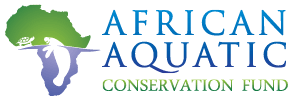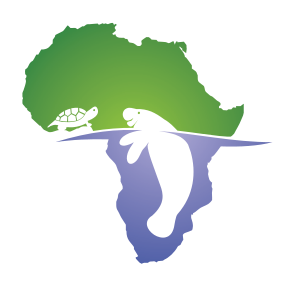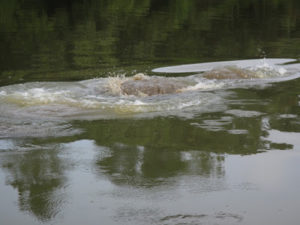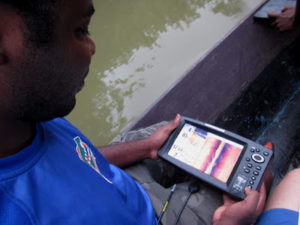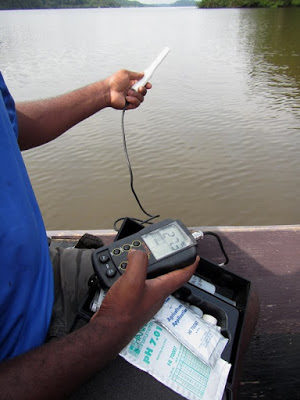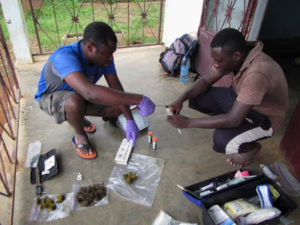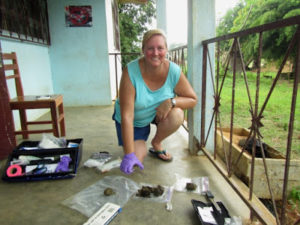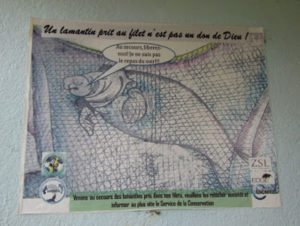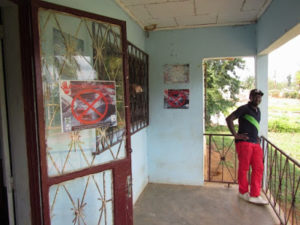
We did several surveys on the lake and were lucky enough to see over 10 manatees! This is amazing for Africa, where sightings are very few.
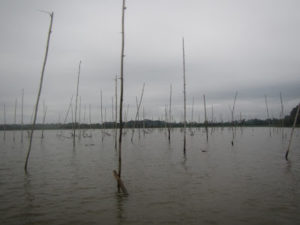 Fishermen in Lake Ossa have filled the lake with bamboo poles attached to traps used to catch small fish. The problem is that the bamboo causes silt to build up, making the lake shallower and less hospitable to manatees. The lake is a protected area, so Aristide and his group are trying to find ways to work with the fishermen so that the manatees continue to have enough good habitat, but the local community can still continue to fish there.
Fishermen in Lake Ossa have filled the lake with bamboo poles attached to traps used to catch small fish. The problem is that the bamboo causes silt to build up, making the lake shallower and less hospitable to manatees. The lake is a protected area, so Aristide and his group are trying to find ways to work with the fishermen so that the manatees continue to have enough good habitat, but the local community can still continue to fish there.
Aristide’s organization, AMMCO, is working to understand where manatees spend their time in the lake, identify “hotspots” and manatee diet, and study water quality in different parts of the lake. Aristide is the first person in Africa to use side scanning sonar to detect manatees. It’s an amazing technology that finally allows us to count the numbers of manatees in the murky chocolate milk water.
Aristide is also working on his PhD, and is studying manatee hormones to see if pregnancy can be determined. To do this he collects manatee feces (poop!) and then tests it for hormones. I also checked the poop for any signs of fish bones or mollusk shells, but these samples were 100% plants.
Rodrigue and Aristide’s group have created 7 different public awareness posters to educate people that manatees are protected and hunting them is illegal. This one’s my favorite- the manatee is saying (in French), “set me free, I’m not for dinner!”
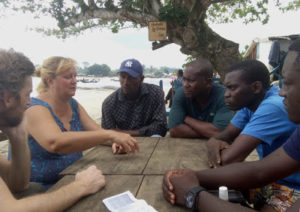 After Lake Ossa we visited a coastal fishing village, Londji, where Aristide’s stranding network is working with local fishermen who report live and dead stranded manatees and other marine mammals. We met with the fishermen to discuss their challenges and progress, and then they gave us a really nice tour of the beach and a mangrove forest.
After Lake Ossa we visited a coastal fishing village, Londji, where Aristide’s stranding network is working with local fishermen who report live and dead stranded manatees and other marine mammals. We met with the fishermen to discuss their challenges and progress, and then they gave us a really nice tour of the beach and a mangrove forest.
Finally, I traveled to the University of Dschang in western Cameroon, where I gave a talk about my PhD research to the Animal Ecology graduate students. They were, without a doubt, the most enthusiastic audience I’ve ever spoken to!
